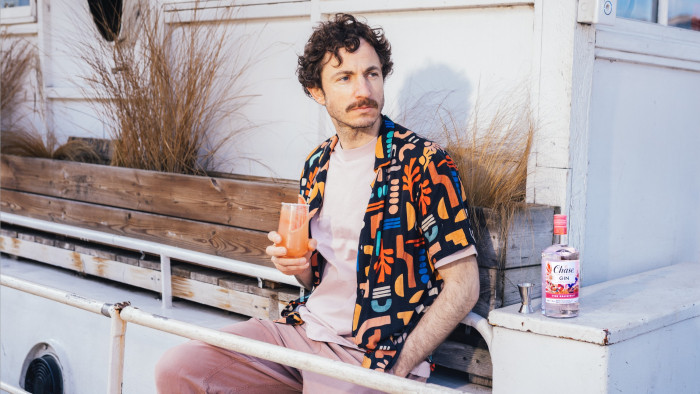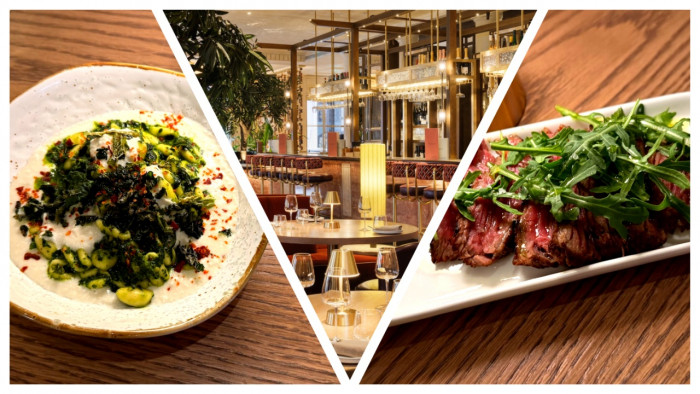Arguably the most affable showrunner in TV, Mad Men’s Matthew Weiner still knows how to keep his cards close to his chest. So as the much anticipated Series 6 approaches, without even a whiff of what’s to come, here he explains masculinity, fashion and our relationship with history in order to explain what it is like inside a chain-smoking, award-winning machine.
Days change depending on where we are in the season.
There’s usually some sort of repair needed after the last season. When we get going, it’s about deciding the time period. I try to get a sense of what we’re feeling right now, because I feel like it has to be parallel to that.
Instead of going through magazines and movies, we lock people into the way they like themselves to look.
We research using home movies and family pictures. Fashion is focused on 18-year-olds and is often extreme. You can take a boy between 1955 and 1970, and 80 per cent of them wear a flat top, khakis and a plaid shirt – not beads and afghan jackets. We just try to keep it within the realm of reality.
We have Bob Levinson, an advertising consultant who was there at the time.
We concoct things and he will tell us a true-life experience from Madison Avenue. He reminds us of the human relationship to history. When you read about people taking to the streets in a protest, you find out from him that most people were trying to get around the protest in their car.
The story of the show is always: what we think is the peak of someone’s power is built on a false identity.
Not just Don’s, but the false identity of men, the pretence that you are strong to other people and weak inside. They’re all damaged: by military service, by frustrations, by expectations, and unsatisfied with the spoils of their conquests. They’re insatiable – that’s a lesson ambitious people never learn. It’s a constant theme in the show: ‘I got what I wanted, why don’t I feel anything?’
You want a narrative arc for each character, but some seasons they’re just there.
With January Jones’ pregnancy last year, we tried to do a compressed storyline for her. But it’s always about Don. All that thematic resonance comes from him, and then you branch it out into the other characters.
It’s not just my direction. Everybody has similar things in mind.
The themes of the show come up over and over again. What do we inherit? Is our identity created or are we born with it? How do we respond to powerlessness? How do we respond to anxiety? Are we really attached to other people?
Don embraced this young woman who saw him as the person he wanted to be.
We let him go with that. He had an emotional attachment to the fantasy of what she would be for him. As Roger said, “they’re all great girls, until they want something.” Eventually he made a sacrifice and helped her with her job, which leaves him even more separate from her.
An existentialist character like Don, with little taste for anything beyond this life, has different ambitions.
As he grows older and closer to the horizon, is there any peace? All of that is bubbling underneath: the unhappiness of people who are trying to behave how society expects them to. They are told it will bring them happiness, but they’re not experiencing it.
Roger has something Don hasn’t – a strong mother.
He quotes her all the time, and there are famous people in history who talk about their mothers; Franklin Roosevelt, Sigmund Freud. These epic mothers fill their sons with a sense of entitlement. Don does not have that. Roger’s openness, liveliness and innate sense of wellbeing is fostered by an abnormal amount of attention in his childhood.
The psychedelic episode was a group effort.
I am not a psychedelic person and my father was a neurologist, so I’d heard horror stories. I knew I didn’t want it to look like the camera was on LSD. I thought it made sense that Roger would have insight from it, breaking off his narcissism in some way. Don could take LSD, but I don’t think he would have the same experience. We’ve seen Don altered – it drags him to the past, brings up painful things.
Don’s trappings might seem uncool, but as society gets more insecure, Don becomes more in touch.
Society becomes like him. Anxious with what it is, where it’s going – something he’s been trying to fake.
I love the obsession over the style of Mad Men.
I love that people want to wear hats now. The strangest thing is the perception that we’re talking about the good old days, when we’re saying that male dominance and confidence has always been a sham, and that our dads who were filled with silence, were also filled with love.
I’ve done my bit for suit sales.
I went to Brooks Brothers during the first season to get a suit, and the guy there said “Before Mad Men, we hadn’t sold a tie to anyone under 30 in five years, so thank you.”
Mad Men Season 6 starts on Sky Atlantic HD on 10 April at 10pm, on mobile devices via Sky Go
Latest
Related Reviews and Shortlists










